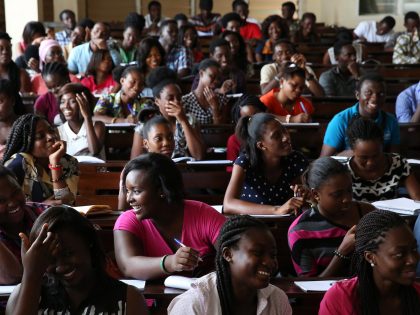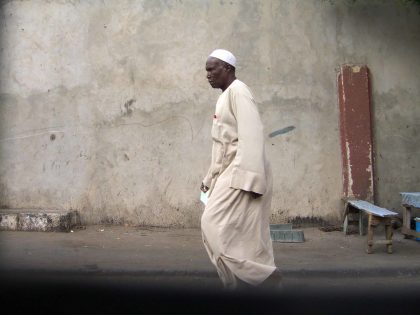
How knowledge makes a discourse true
Mainstream discourses about Aamajiranci, northern Nigeria’s Qur'anic schooling system, expose the power politics of knowledge in postcolonial societies.

Mainstream discourses about Aamajiranci, northern Nigeria’s Qur'anic schooling system, expose the power politics of knowledge in postcolonial societies.

How might refugee as well as forced migration studies benefit from the movement to decolonize all aspects of African Studies?

For philosophy to be relevant in Africa, it must democratize and address contemporary social problems.

We are usually more attuned to Africa’s pains than to Africa’s pleasures. What would studying African pleasures, beyond censorious judgment, look like?

Must indigenous knowledge be science to be valid? Philosopher Paulin J. Hountondji shows that we must ask why Africa is scientifically and technologically dependent in the first place.

The University of Edinburgh will award an honorary doctorate to Joe Schaffers, a working-class educator from Cape Town, South Africa. It will be a new benchmark for this tradition.

A decision to rescind an invitation to Israeli academics to a conference in South Africa, revived a tactic of the anti-apartheid struggle. Is it effective?

The Sixth International Congress of African and African Diaspora Studies in Accra in August 2023 foregrounds the struggle against African Studies as a form of knowledge production located, for the most part, outside Africa.

The centrality of race, colonialism, political projects around transnational identities, and the social sciences, all had effects on how the Middle East as a region came to be.

Decolonization in Kenya may be permitted in its universities if the Kenyan government receives a grant to promote it, or if foreign donor will sponsor it.

The profound influence, often underplayed, that great African revolutionary Amílcar Cabral had on Brazilian educator and philosopher Paulo Freire.

The greatest achievement of Ghanaian philosopher Kwasi Wiredu was to recast African knowledge from something lost to something gained.

We do not have to die, become sick or leave the academy to live and be in this space.

Marcel Paret’s book, "Fragmented Militancy: Precarious Resistance in South Africa after Racial Inclusion," tries to make sense of politics in South African urban informal settlements.

The death of Paulo Lara warrants an appreciation of his and his family’s contribution to preserving the documented history of Angola’s liberation struggle.

Protracted strikes in Nigeria’s higher public education sector lay bare nefarious efforts by the ruling class to entrench privatization.

Since 1999, Nigeria's academics have gone on strike 15 times. Since February, they've been on strike again. This week on the AIAC Podcast, we unpack why.

Islamic scholarship in Africa and the meaning and end of decolonization in the work of religious studies scholar, Ousmane Kane.

Oupa Lehulere, revolutionary teacher and mentor, died on November 29. His approach to theoretical study and struggle was the same: there are no shortcuts.

The radical politics of the professional middle classes—too often found full of rhetoric, but short on action—are explored in Leo Zeilig’s new novel, The World Turned Upside Down.